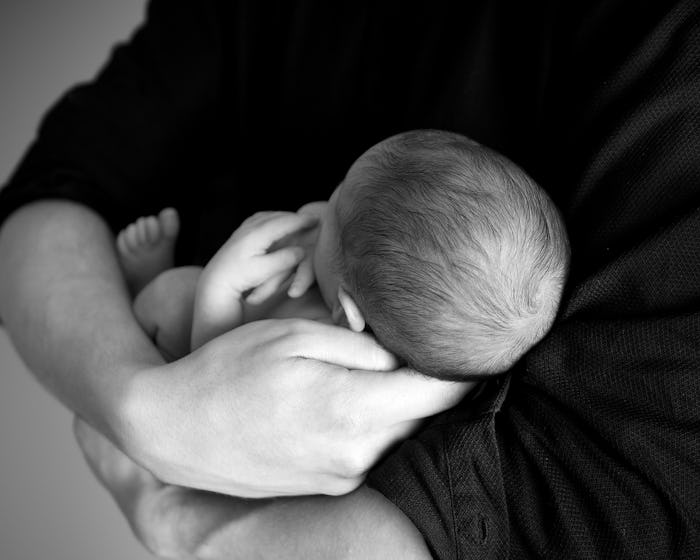Raising a child is stressful, there's no question about it. Even though you've had nine months (and however many years) to prepare yourself, the idea that you're completely responsible for another human's life is overwhelming to say the least. It's only natural that your stress levels will increase. But how does that affect your baby? Can babies tell when you're stressed? You know that being stressed can be damaging to your health, but is it possible that you're passing along those negative effects to your little one?
The simple truth is, yes babies can tell when their parents are stressed, according to a WebMD interview with Jennifer E. Lansford, PhD, a professor with the Social Science Research Institute and the Center for Child and Family Policy at Duke University. Because your child uses you as a gauge for emotional cues and reactions, they're attuned to your emotions, even if you don't realize it. “From birth, infants pick up on emotional cues from others," Lansford said. "Even very young infants look to caregivers to determine how to react to a given situation.”
It's no secret that stress and pregnancy are like oil and water. One of the first things a doctor recommends is that you dial down your stress while pregnant, because it can cause complications for both mom and baby. "Stress is a silent disease," Dr. Calvin Hobel, director of maternal-fetal medicine at Cedars Sinai told WebMD. Hobel went on to stress the importance of educating expecting mothers about stress and its consequences. But it turns out, stress management techniques should be utilized just as often post pregnancy as they are during pregnancy. Because if you think that stress is only affecting you, think again. According to a study published in the journal Psychological Science, babies don't just recognize when their parents are stressed, they actually show physiological signs of stress themselves. Which is to say, your stress can be contagious.
The idea that emotions can be contagious isn't a new concept. In fact, an article published by Elaine Hatfield, John T. Cacioppo and Richard L. Rapson, even coined a name for it: emotional contagion. The article defined emotional contagion as " the tendency to automatically mimic and synchronize expressions, vocalizations, postures, and movements with those of another person and, consequently, to converge emotionally." And according to Psychology Today, emotional contagion is something that's essential for survival. But stress is an emotion that can be damaging to parents and children, so keeping your stress in check and practicing stress management techniques is incredibly important. As an adult, you're able to control your emotions much more successfully than a baby can. Though they pick up on your stress and exhibit signs of stress themselves, they're unable to discern why they're stressed, and how to become less stressed.
Although a little bit of stress is normal (because let's face it, motherhood is stressful), too much stress, and constant stress over a period of time can have a negative impact on both you and your baby. According to What to Expect, prolonged exposure to stress hormones can impact a baby's brain development. To avoid passing on any elongated or toxic stress to your child, find ways to decrease your stress that can be integrated into your daily routine. From deep breathing, to exercise, to meditation and several stops in between, finding activities that help you manage your stress will keep both you and baby happier in the long run.
